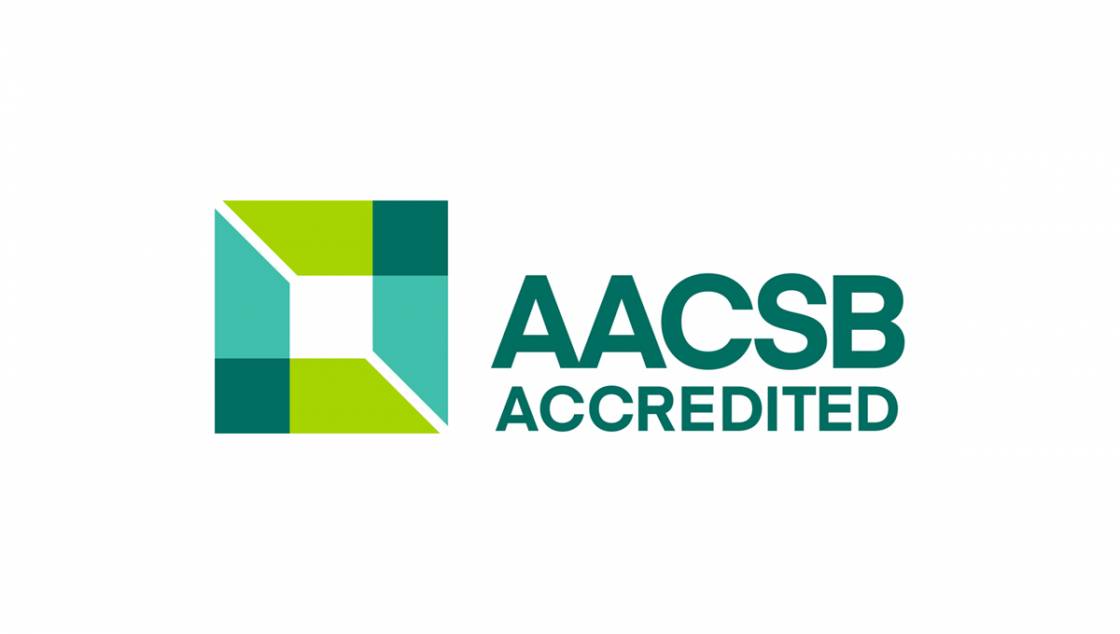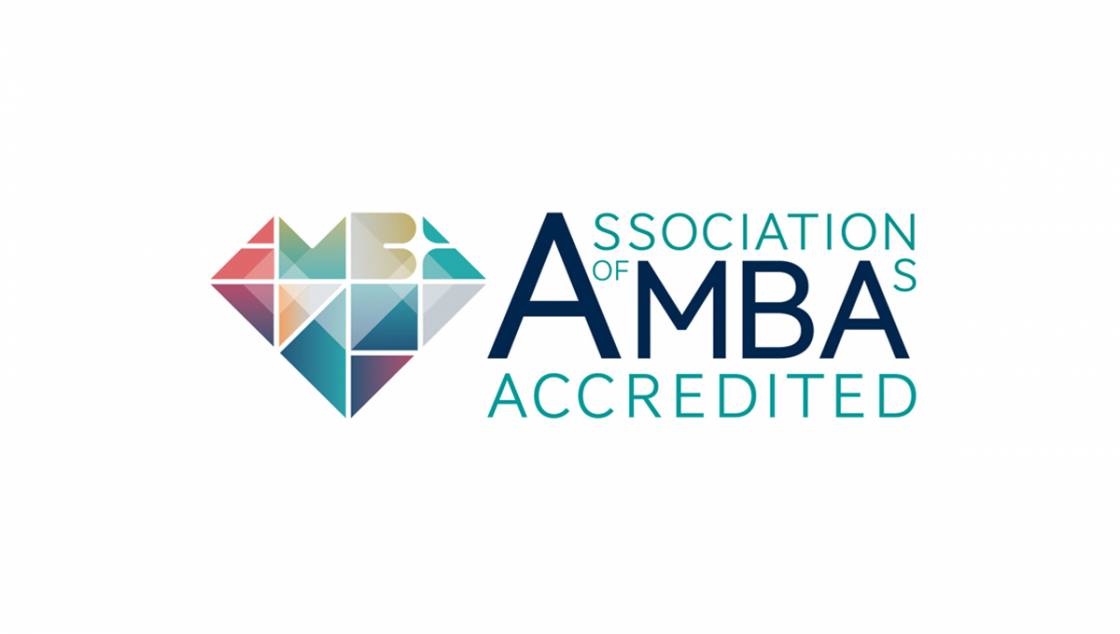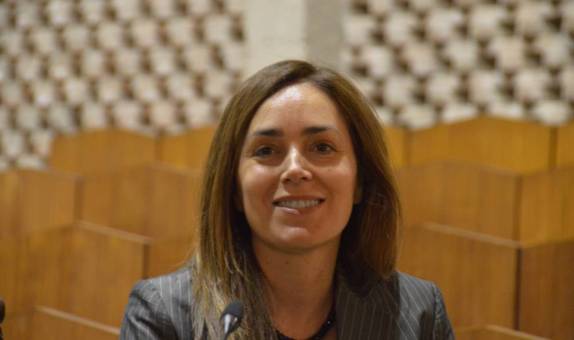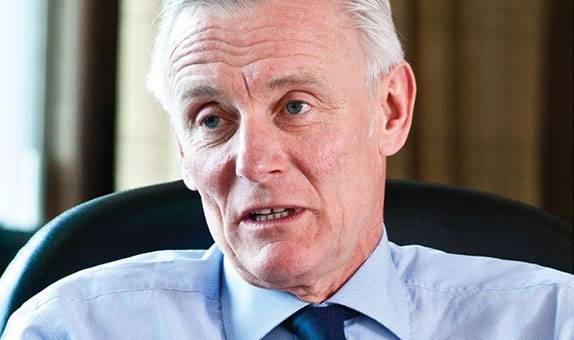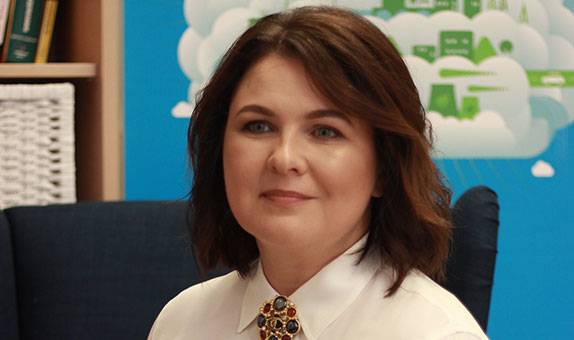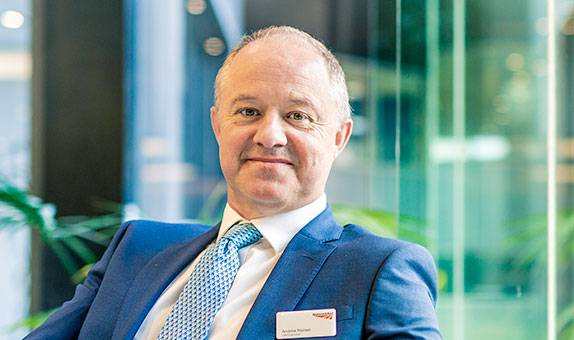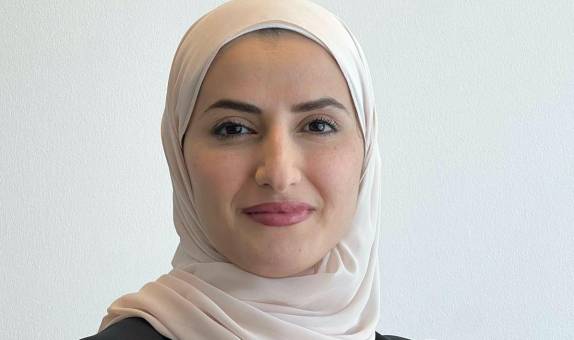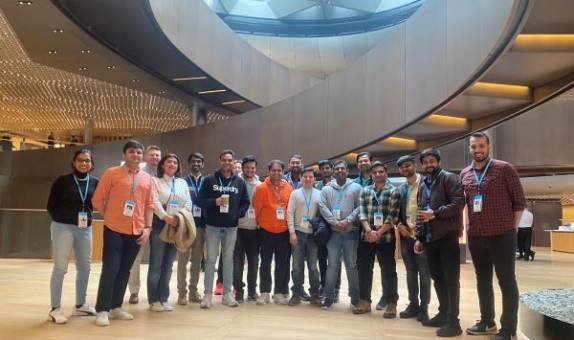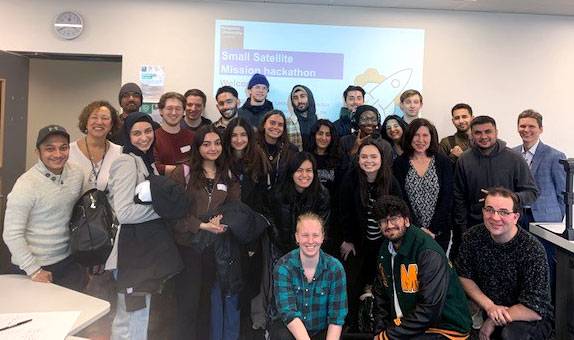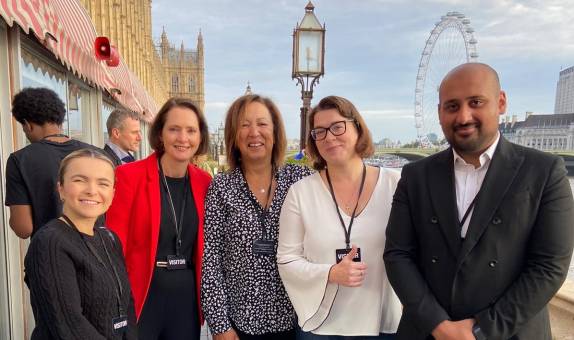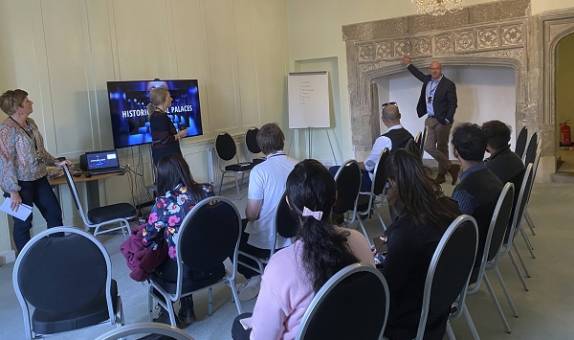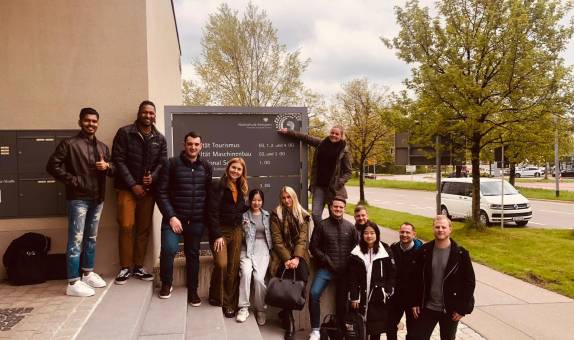Master of Business Administration (MBA): Cyber for Business Leaders
Why choose this course?
Multi-disciplinary business innovation and leadership to manage your people, operations, finance and data security are the driving forces behind our brand-new Kingston Master of Business Administration (MBA) - Cyber for Business Leaders.
In the fast-moving cyber world, there is an ever-growing demand for professionals with a strong understanding of both business and cyber security. The active engagement of non-technical management, as well as an overall commitment to building a cyber security culture within organisations is paramount.
Build a tailored MBA, whether you work for a large organisation or are planning your first start up. High-quality, informed teaching will give you practical skills, help you make effective business decisions, think creatively and find solutions to real-life challenges.
Cyber, sustainability, ethical business and data management are incorporated into all modules. Kingston University has a strong focus on innovation, entrepreneurship, leadership and managing change, and offers a digital cyber and innovation hub, an incubation programme, and a co-working space.
| Mode | Duration | Start date |
|---|---|---|
| Full time | 1 year |
September 2024 January 2025 |
| Part time | 2 years |
September 2024 January 2025 |
| Full time | 2 years including professional placement |
September 2024 January 2025 |
| Main location | Penrhyn Road and Kingston Hill |
The Kingston MBA
Reasons to choose Kingston University
- An MBA at Kingston will develop your personal capacity and leadership skills, and help you build a career plan to meet your ambitions.
- This innovative course combines both business and digital intelligence, giving you a competitive advantage in the job market.
- You will have the opportunity to explore additional learning opportunities through industry-leading cloud security training on AWS Foundations, and professional cyber for business certification such as the Google Cybersecurity Professional Certificate.
- Kingston Business School is one of only 5% of the world's business schools to be accredited by AACSB International.
MBA at Kingston University
Course leader Pauline and current student Barbara talk about the MBA at Kingston.
About the Department of Strategy, Marketing and Innovation
The Department of Strategy, Marketing and Innovation comprises passionate and enterprising academics from a diverse range of backgrounds. Our undergraduate and postgraduate qualifications bring together research, practitioner insights and teaching expertise in the disciplines of marketing, international business, entrepreneurship, strategy and innovation.
Our courses are truly experiential, providing you with opportunities to undertake company visits, attend networking events and hear best practice from industry guest speakers.
What you will study
Through the MBA we aim for our students to actively analyse, question, interpret and innovate. This course will prepare you to identify and embrace potential opportunities whilst developing your creative capacities, digital intelligence and collaborative approach in order to be successful in different environments.
Part I
Part II
Year 2 (optional)
Part I aims to develop a foundation in general management, including skills and perspectives across business function areas. It includes eight integrated subjects which develop your understanding of theory and practice to enable you to achieve a corporate perspective of their enterprise. You will also study two specific cyber-related modules that will equip you with essential knowledge and skills in cyber security and leadership.
Core modules
Big Data and Business Analytics
15 credits
This module is designed to introduce business students to the exciting world of business intelligence and big data science with a particular focus on its use to inform strategic decision-making policies. Today's managers need to understand where and how to use business intelligence and big data analytics, to allow them to utilise new sources of customer, product, and operational data, which coupled with data science will allow them to optimise key business processes and KPIs.
Organisations and Management in a Global Context
15 credits
This module introduces you to a systemic approach to identifying, understanding and analysing macro, meso and micro issues, set within the global context, which have significant implications for the successful management of organisations and the people within them to produce appropriate detailed recommendations for organisational implementation.
Financial Management
15 credits
This module will help you develop and enhance your critical understanding of a range of topical issues associated with financial management. You will do this by reviewing and analysing the position and performance of organisations as revealed in their financial statements and stock market indicators in the case of listed companies or key performance indicators in the case of not for profit organisations. In addition you will explore recent theoretical frameworks and empirical evidence concerning financial management issues to be found in the academic literature and then you will work to make sense of these in a practical context. You will engage with a broad range of issues, from financial reporting, through accounting for management decision making in the short and long term, to considerations of decision making in the context of responsible capitalism and accounting for and with sustainability issues.
Operations Management
15 credits
This module is core on the MBA. The module introduces you to the nature and scope of operations management within private and public sector operations in both service and manufacturing environments. The module explores operations strategy, process and capacity issues, supply chain management and improving operations.
Digital Marketing Practice
15 credits
The module aims to provide aspiring senior managers with an appreciation of the likely multidisciplinary impact of digital transformation on the overall customer experience and the need to develop future marketing executives possessing the necessary skills and capabilities, namely IT skills, to comfortably communicate across the different business functions ensuring that all digital platforms achieve optimal customer centricity.
Responsible Management
15 credits
The module provides a critical understanding of the concepts of business ethics, corporate social responsibility (CSR), and stakeholder management and enables you to analyse, evaluate, and formulate business decisions in the light of ethical and societal considerations. It will enable you to manage organisations and your activities in a socially responsible way through the ability to evaluate CSR practices as applied to various business issues.
Strategic Management
15 credits
This module is a core module for the Master of Business Administration. The module explores how an organisation could develop widely supported and high quality decisions in a manner that would ensure its ability to succeed and remain sustainable. The module also helps you to learn how to translate a strategy into action in organisations and engage with the challenges that the implementation of strategy brings about in order to ensure sustainable success in a rapidly changing environment.
To achieve this we will be examining a number of conceptual and analytical approaches and models to help us understand the assets and capabilities of the organisation, and its relationships with suppliers, customers, regulatory bodies and other firms. Following on from this analysis we will consider the issues involved in understanding and designing strategic options and introduce a number of ideas as how the execution of strategy should be understood and related to different activities of the organisation that relate to the implementation of its different strategic options in terms of people, processes and technology.
Enterprise and Innovation
15 credits
Students learn the necessary skills to build and scale a successful business. This includes how to develop ideas, build prototypes, and understand what customers truly want. The focus of the teaching and student experience is around hands-on learning and entrepreneurial activity. Students are given the opportunity to attend guest lectures with practising entrepreneurs and intrepreneurs to gain practical understanding towards making innovation happen. Support will be given through the Kingston University flexible office space for entrepreneurial start-ups, drop in advice, training and challenges.
Assessment is through coursework, presentations, business prototypes and completion of the entrepreneurial process.
Cyber for Leaders
15 credits
This module equips you with essential knowledge and skills in cyber security, focusing on its practical application in business contexts.
You will explore techniques that are crucial for safeguarding sensitive information and systems in business operations. Through critical analysis, you will identify and assess security weaknesses, network and system threats, and resulting risks associated with common infrastructures used in business settings.
Emphasising ethical and legal considerations, you will also engage in critical discussions regarding the professional implications of cyber security in business practices.
Organisation Leaders in Cyber
15 credits
This module is designed to develop your skills so that you are equipped to take on business leadership roles in the realm of cyber security; making informed decisions, implementing best practices and responding effectively to emerging threats.
You will learn to apply effective methodologies to assess, evaluate, and manage the information security needs of business organisations. You will also develop and implement tailored cyber resilience strategies to enhance business preparedness and response to cyber incidents.
By the end of the module, you will be confident in tackling cyber security challenges and contributing to a secure and resilient business environment.
Part II aims to develop further practical management skills through the delivery of the Management Consultancy Project.
Running throughout your MBA studies the Career and Leadership Journey module aims to support you in your personal and professional development whilst refining your executive leadership and professional skills.
Core modules
Management Consultancy Project
30 credits
This is a core module in the MBA programme. The module consists of taught sessions on theory and practice of management consulting, as well as business research methods and a set of activities to support MBA candidates in the development of their consultancy project. As such it looks at the relevant business research and analysis instruments and processes of sourcing and delivering consulting work. Perspectives of both consultant and client in a typical engagement are considered. The material provides solid theoretical and practical background to those wishing to pursue management advisory work on a professional basis.
Career and Leadership Journey
0 credits
The Career and Leadership Journey module runs throughout your studies at Kingston and aims to support you in your personal and professional development through an emphasis on the refining of leadership, teamworking and the acquisition and refining of executive and professional skills. It also aims to prepare Senior Apprentices to meet Behavioural Standards for their End Point Assessment (EPA). The module builds on the recommendations of joint research undertaken by the Chartered Association of Business Schools (ABS) and the Chartered Management Institute (CMI) aimed at meeting the growing demands from employers for business schools to produce more professionally adept managers and leaders. You will develop a number of valuable transferable skills via a series of workshops, each focused on a different aspect of your leadership, managerial and professional development, and help you develop as an individual those areas of most relevance to you. Throughout your journey you will also be able to track and assess your own individual progress. Module workshops and other activities are delivered by a range of academics and practitioners.
This professional placement year is optional. It takes place after the full time MBA year. It allows students to do a 12-month work placement as part of their course. The work placement is an assessed part of the course and is therefore covered by a Student Route visa.
Find out more about the postgraduate work placement scheme.
Core modules
Professional Placement
120 credits
The Professional Placement module is a core module for those students following a masters programme that incorporates an extended professional placement that follows completion of the first 180 credits of taught modules and project or dissertation. It provides students with the opportunity to apply their knowledge and skills in an appropriate working environment, and to develop and enhance key employability skills and subject specific skills in their chosen subject.
It is the responsibility of individual students to locate and secure a suitable placement opportunity; this will normally involve one placement which must be completed over a minimum period of 10 months and within a maximum of 12 months. The placement must be approved by the module leader prior to commencement to ensure its suitability.

International Fortnight
All Kingston MBA students come together for our annual International Fortnight. Taking place on campus, during International Fortnight you will study and socialise with other MBA students. Building on the knowledge you've gained so far on your course, you will immerse yourself in your choice of specialist elective modules and hear from inspiring guest speakers. Previous attendees have also had the opportunity to take part in exciting company visits.
Entry requirements
We advise that candidates apply for the Kingston MBA as soon as possible – it can take longer than you think to get organised to start your MBA. We accept admissions throughout the year, so you can join the next available group of students when you are ready.
Specific MBA admissions criteria
Committing to an MBA is a huge, life-changing decision. We want your experience on the Kingston MBA to be challenging, enjoyable and rewarding, so making sure we select both the right students and the right mix of students is extremely important. We use a set of admissions criteria to determine if a student is ready to take on an MBA. The criteria help us to make sure that you can successfully complete the MBA, and that each cohort of students will work together successfully as a team.
| Area | Requirement | You need to provide: |
|---|---|---|
| Academic |
First degree or recognised equivalent from a professional body. | Certified copy of your degree, transcripts, or letter of award. |
| We also consider applications from individuals with considerable management experience but no first degree. | Evidence of alternative professional development and achievement. | |
| Work experience | Minimum of three years' relevant work experience for the full-time programme or five years' managerial experience for the executive programme. | |
| English proficiency | Very proficient written and spoken English. | Applicants whose first language is not English are expected to meet our requirements for English language proficiency (see below for details). |
| Motivation | The MBA is a big commitment. We need to know you have thought about the opportunity and the consequences of studying. | Personal statement (750 words maximum) within application form. Interview to discuss the suitability of the MBA for you. |
Teaching and assessment
Kingston Business School Accreditations
Kingston Business School holds the prestigious international accreditation by the AACSB (Association to Advance Collegiate Schools of Business) in recognition of the excellence of its business education. This accreditation has been earned by just 5% of the world's business schools and recognises the high quality and standard of our business degree offerings.
Kingston Business School: be who you want to be
At Kingston Business School we lead
Accreditation
The Kingston MBA has been accredited by the Association of MBAs (AMBA) since 1984 – one of the first UK MBAs to achieve this endorsement. Joining Kingston's MBA programme opens the door to lifetime membership of the Association of MBAs (AMBA) and a global alumni network.
The AMBA is the leading accreditation body in the UK and is receiving increasing recognition across Europe. It provides an independent, international verification of quality which assures employers that our MBA is well respected and up to date.
Who teaches this course?
You will be taught by an experienced teaching team whose expertise and knowledge are closely matched to the content of the modules on this course. The team includes senior academics and professional practitioners with industry experience. The following group of staff members are currently involved in the delivery of different elements of this course. This pool is subject to change at any time within the academic year.
Course fees and funding
Additional costs
Depending on the programme of study, there may be extra costs that are not covered by tuition fees which students will need to consider when planning their studies. Tuition fees cover the cost of your teaching, assessment and operating University facilities such as the library, access to shared IT equipment and other support services. Accommodation and living costs are not included in our fees.
Where a course has additional expenses, we make every effort to highlight them. These may include optional field trips, materials (e.g. art, design, engineering), security checks such as DBS, uniforms, specialist clothing or professional memberships.
After you graduate
Graduates will be empowered to advance their careers in a variety of ways, according to the individual's career aspirations. Many of our MBA alumni use the knowledge gained from the course to help them operate more effectively at a higher level of senior management, either within their existing industry, or taking the opportunity to transition into a new role/ sector.
Others use these skills to successfully set up their own business, or expand into a consultancy role within an existing firm, or by setting up their own.
This course will also support graduates to become leaders that have a profound understanding of the cyber security challenges, but also have an insight into the state-of-the-art tools, technologies and methods prevalent in the industry to prevent and tackle cyber security issues, in real-time.
Our MBA Alumni
Upon graduation you'll be joining an elite network of Kingston MBA alumni linking you up with future business colleagues and your next job role. We take great pride in the success and stories of our MBA Alumni:
Life on this course
What our MBA students say
Course changes and regulations
The information on this page reflects the currently intended course structure and module details. To improve your student experience and the quality of your degree, we may review and change the material information of this course. Course changes explained.
Programme Specifications for the course are published ahead of each academic year.
Regulations governing this course can be found on our website.



